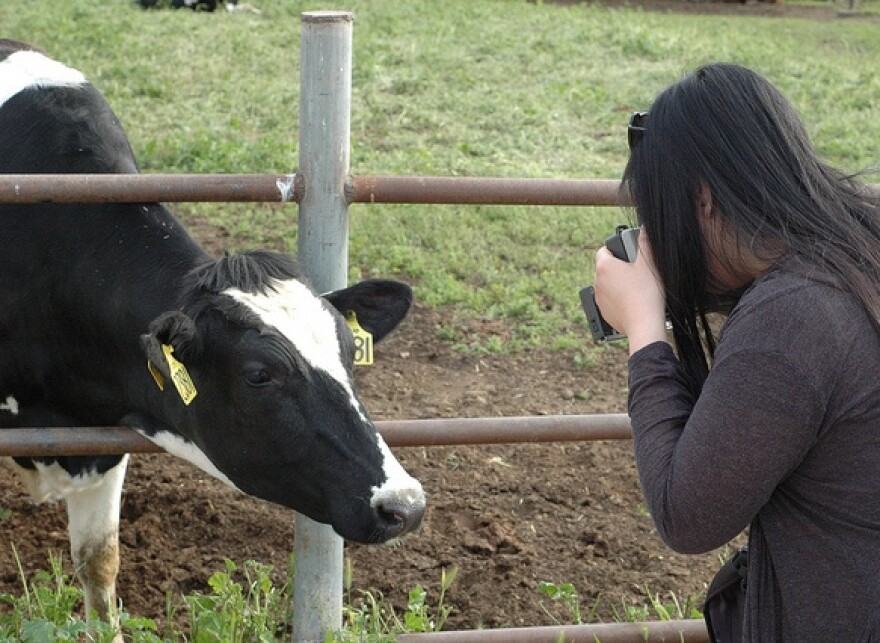On Wednesday a federal judge hears arguments on Idaho’s new “ag gag” law, which creates stiff punishments for people who surreptitiously video or photograph agricultural operations.
Animal and civil rights activists are suing to overturn the law. The state is asking district judge B. Lynn Winmill to toss out the suit. He won’t decide the case based on this week’s hearing, he'll decide if it should move forward.
University of Idaho associate law professor Shaakirrah Sanders says the law raises serious constitutional concerns. Sanders almost never makes predictions about outcomes of legal hearings. But she's making an exception for Wednesday’s hearing. Sanders thinks the judge will advance the suit.
“I think it would be very difficult for Idaho to prevail on a claim that there are no First Amendment issues,” Sanders says. “And I think it’s pretty hard to negatively dispute that the way food is prepared or manufactured or grown, is something that’s outside the bounds of the public’s interest.”
Sanders says the law involves straightforward issues of freedom of speech, and freedom of the press. But there are also more complicated constitutional questions. For example, she says, the law can be interpreted to mean that if someone secretly taped a farm and then used the tape to say positive things about that farm, that would be OK. But if the video was used to say negative things the person who took it could be subject to a year in prison. She says that looks a lot like the government trying to suppress a particular viewpoint.
“If the court finds that that’s exactly what Idaho has done, then it’s going to be very hard for Idaho to defend the law because then it will get the highest level of scrutiny and that usually means we presume a law is unconstitutional,” Sanders says.
Sanders says the law brings up other constitutional issues as well, like equal protection. It seems to put agriculture in a special class, essentially sending the message, 'don’t video inside a dairy, but the state doesn’t care if you video inside a factory.'
A similar law is being challenged in Utah, but Sanders says it hasn’t advanced far enough to give an indication of how a judge might ultimately rule in Idaho.
Follow reporter Adam Cotterell on Twitter @cotterelladam
Copyright 2014 Boise State Public Radio



